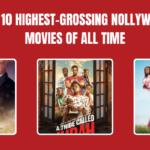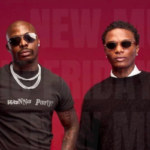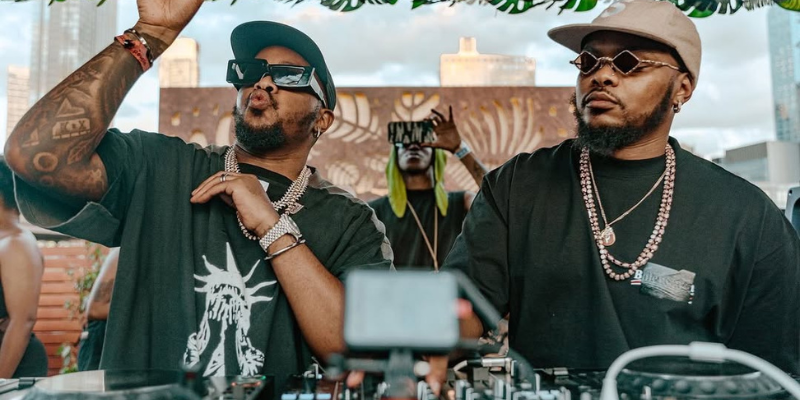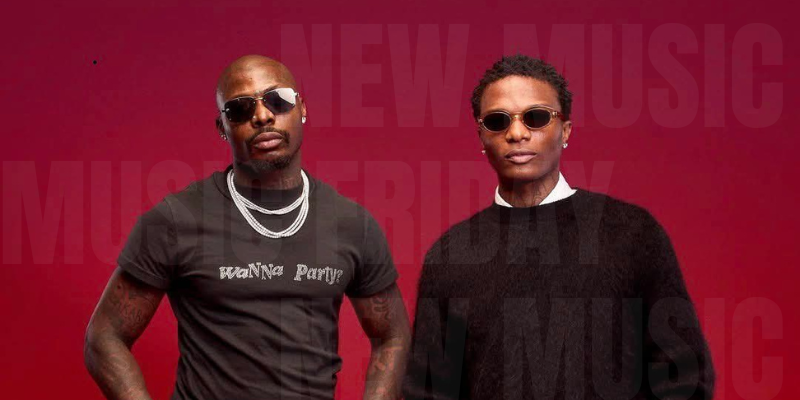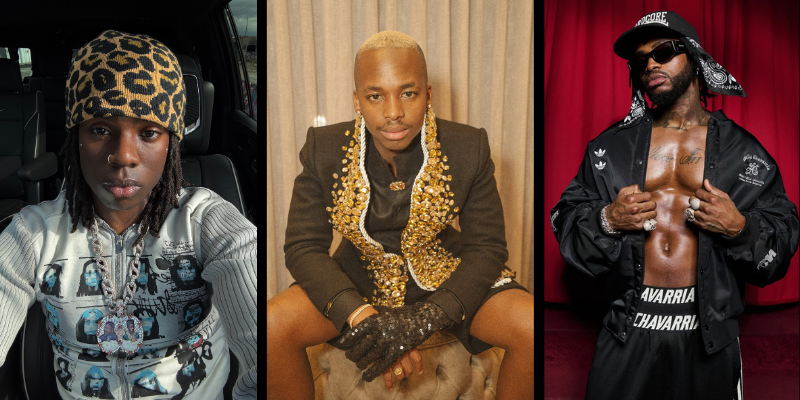According to the IFPI Global Music Report 2025, the music industry in Sub-Saharan Africa generated $110 million, a 22.6% growth rate, after surpassing $100 million for the first time in 2024. Due to the increased demand for local artists and the broad adoption of streaming, this milestone demonstrates the region’s expanding position in the global music business.
Artists, labels, and streaming services have rightfully received a lot of credit for being the architects of this explosion. Behind the headlines and popular songs, however, are unsung tastemakers who subtly influence what people listen to, dance to, and ultimately stream. Their influence doesn’t always make the charts, yet without them, many of the songs powering this revenue surge might never have broken through.
DJs – The first believers
DJs are often the first to embrace new music in Africa’s vibrant nightlife. A song frequently finds its first audience on dance floors long before it starts to rise in the charts or receive radio broadcast. DJs frequently test which tracks can hold a crowd’s interest and which ones don’t.
If a song strikes a chord there, it becomes credible enough for marketing campaigns to build upon and turn into a smash. Amapiano’s gradual ascent to international stages in South Africa was sped up by DJs who spread the music across the country’s nightlife, making it a worldwide sensation.
DJs influence tastes, establish trends, and frequently determine the type of music that producers and musicians rush to create next by determining what is played week after week. Nigerian musician Tekno acknowledged in an interview with Afrobeats Intelligence that he frequently attends clubs just to listen to songs appealing to listeners.
Yet DJs’ influence isn’t limited to the dancefloor. Their recorded mixes are now a major part of Africa’s streaming culture, introducing audiences to new songs in curated, seamless formats. According to a 2022 Turntable article, Apple Music reported a 500% surge in African DJ mixes between August 2021 and August 2022. The biggest jump came from Nigeria, where streams of DJ mixes skyrocketed by 3,000% year over year, pushing the country into the world’s top 10 markets for DJ mixes. South Africa also ranked among the top 10, with streams growing by 150%, while Kenya, Uganda, and Ghana emerged as other key drivers of this trend.
These numbers confirm what the clubs have long proven: DJs are not just entertainers, they are vital tastemakers shaping what becomes popular locally and what eventually travels across borders.
Playlist curators – The indie storytellers
While clubs test records in real time, the streaming world has its own tastemakers: independent playlist curators. These are the people building communities around music, often giving emerging artists their first shot at discovery. Unlike algorithmic or editorial playlists controlled by DSPs, indie curators dig, listen, and decide what deserves attention.
Take Jess “Finesse” Chibueze, creator of The Flexlist. Her playlist was already reaching thousands of listeners in Nigeria, the U.S., and the U.K. That international pull proved there was an appetite for Nigerian-curated playlists even without formal infrastructure. What Spotify’s entry did was give curators like Jess better tools and metrics to measure influence, visibility to attract more followers, and a lower barrier to operate, allowing her to scale what was already working.
Others, like Tolu Daniels with his New Music Friday picks playlist or The PurpleJazz with her genre-specific curations, have become trusted voices in shaping what audiences discover. Their work often places emerging artists side by side with established stars, giving underground records a shot at traction.
And then there’s WeTalkSound, a movement that began as a WhatsApp group in Ibadan in 2016 and has grown into a 360 music company with design, tech, events, and playlisting at its core. In 2025, WTS became an official curator on Apple Music, running playlists like Street Frequency, Afromantic, and Hot Drops. Their process is deliberate: monitoring TikTok, attending raves, tracking underground sounds, and reviewing artist submissions as a team. Founder Dolapo Amusat frames it simply: “The question is always: does this reflect what’s happening right now, and will putting it here help this sound reach further?”
Music marketers – The Architects behind the buzz
In the wake of the streaming era, a new reality has emerged: good music alone is not enough. Without visibility, even the most captivating record risk is being buried under the sheer volume of daily releases. This is where music marketers step in, the architects who design how a song finds its audience.
A quick look at the career of rising Nigerian star Mr. Fido highlights the importance of this role in today’s music landscape. He first broke into the mainstream with ‘Awolowo,’ thanks to the marketing team of CiDAR Africa, the company responsible for the success of Wizard Chan, Tobi Adu, Ayo Maff, Shoday, and Kunmie, who is one of the breakout stars of 2025.
His next attempts to market music outside his label and without the expertise of Cidar Africa failed. It wasn’t until he returned to the company for Joy Is Coming that he secured his biggest hit yet. This is proof that marketing is not optional in 2025; it is the difference between a potential hit record and a career-defining single.
Music marketers operate behind the scenes, but their work is visible everywhere: social media challenges, radio airplay, influencer partnerships, branding strategies, and playlist placements. These campaigns are cost-intensive, difficult, and unpredictable, but when they work, they transform songs into chart-topping, money-making hit singles.
Music can’t market itself. Marketing teams shape the narrative around a record, plant it in the right spaces, and ensure it reaches the right audience. Without them, good music will remain unheard.
In 2025, marketers are among Africa’s most decisive tastemakers. They may not step on stage or appear in music videos, but they are the ones ensuring that talent reaches far beyond the studio.
Influencers & content creators
Social media has made influencers and content creators influential in Africa’s music ecosystem. Platforms like TikTok, Instagram, and YouTube have turned everyday creators into tastemakers with the ability to put a song in the faces of a widespread audience across different demographics. Unlike traditional promotion, their content has to feel organic and authentic so it resonates strongly with their audience.
On TikTok, a dance challenge or skit can turn a record into a national hit. Poco Lee, for example, has played a role in bringing countless Afrobeats records to wider audiences through his charismatic choreography and radiating personality. Burna Boy’s Its Plenty took off on Asian TikTok, with its popularity soaring after a TikToker with the username @yourlologab started a dance challenge for it.
Through Stories and Reels, influencers introduce followers to songs in relatable ways. A song featured in the background of a viral Reel can trigger a spike in streams. Labels and artists are increasingly investing in influencer campaigns for this reason. A dance routine, or even a funny skit, can push a song further than ads.
Of course, the space has its challenges: oversaturation, short-lived trends, and questions of authenticity. But the fact remains that in 2025, influencers are among the most critical underappreciated tastemakers in music.
Final thoughts
Africa’s music boom is often measured in streaming numbers, international chart placements, and sold-out tours. But the engine behind that growth is powered by more than artists and labels. The underappreciated tastemakers remain essential in translating raw talent into movements that reach the world.
As the industry surges past new milestones, it’s important to give due recognition to these voices, making African music a global force.




